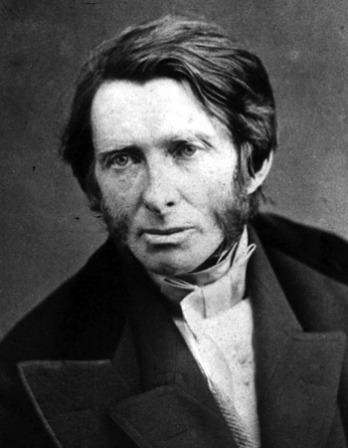The world is for thousands a freak show; the images flicker past and vanish.
—Johann Wolfgang von Goethe, 1776Apology Tour
Joseph Glanvill on how to get a damned spot out.
Spots are better worn out by time and patience than wiped off by hasty zeal of reputation. Dirt while it is green will not be struck off clear, but the very wiping of it fastens some stain and spreads it further.
Industrious apologies in such cases beget suspicions and raise more scandal. And it is a scandalous thing to have so much appearance of guilt as to seem greatly concerned to clear one’s innocence; such lewd reproaches will die by themselves when they are let alone and despised, but they are revived and kept alive by much ado of answering and refuting. The best way for any man to confute a slander is to do it by the greater strictness of his life. And if I was to counsel any clergyman that was fallen under such circumstances of misfortune, I’ll tell you how I would advise.
(1) I would persuade him to examine strictly what occasion he may have given by any appearance of the vices with which he is reproached. It is not sufficient for the clergy to avoid evil, but they must stand off out of the shadow of it. Many things are lawful and harmless but not expedient, especially for men of sacred character.
(2) If he be clear of the things imputed to him, he ought then to consider narrowly what other sins he is guilty of that may be the reason of God’s leaving him to the fury of malicious revilers. He should resolve to be more careful that his ways please the Lord, and then his enemies will be at peace with him.
(3) I would have him tie himself to a greater and more severe industry in the duties of his place. He should punctually perform all that his rule requires, without deviations or omissions, and not content with doing but just what is required of him. He should employ himself in all those particular industries (that the law allows) that he judges tending to the glory of God, the honor of religion, and the edification of his charge.
(4) It is further advisable, in my opinion, that such an injured minister betake himself to great privacy and retiredness of living, that he be not frequent in unnecessary visits, that he mingle not ordinarily with common and promiscuous companies, that he be not seen much abroad except when he is about urgent affairs that relate to his office, that he go not without great cause to public houses or places of resort, but that he stick close to his studies and the preparations that are requisite for the due discharge of his great and important business.
However severe these rules may be thought, I judge they are exceedingly expedient, if not necessary, for a person in the circumstances we suppose. And really there is so much wickedness, folly, and trifling in the ordinary conversations of the world that I think no serious, intelligent man should endure to be much in it. In my judgment it is most advisable for all the clergy in this evil generation to draw up (as far as is possible) into privacy and retirement, for the sea is too rough for them to be abroad upon it.
These things I know (and by some experience) will contribute very much to the quiet and vindication of such an injured person, and more than all the verbal apologies in the world. Or if they succeed not to clear his name, and restore him to the good opinion of men, there is yet no doubt but they will give him peace and approbation with God, and conscience, which is infinitely better.
And if after all this, malice and infamy should persecute him still, if it should continue upon him the old slanders, he ought not be concerned, but may despise those impudent falsehoods and scorn to trouble himself to disprove them. He should not yield his enemies the satisfaction of having vexed and discomposed him, but rest himself contented with his innocence and the testimony of his conscience, blessing God that he is not such a person as they would render him to the world, and praying God to give them a due sense of this their sin, and to pardon them upon their repentance. In order to which excellent temper he should frequently consider God, who with much long suffering endured the contradictions of all sorts of sinners and was reproached and vilified in his name, as well as injuriously treated in his person. Since they called him, our Lord, Beelzebub and published him for a wine bibber, a glutton, and a friend of publicans and sinners, why should we care what they call us, or be at all moved at the reproaches which we have not deserved?
Joseph Glanvill
From “An Apology and Advice for Some of the Clergy, Who Suffer Under False and Scandalous Reports.” The son of a Puritan merchant, Glanvill was ordained in 1660 by the restored Church of England and began a twenty-year career as a clergyman, writing treatises in favor of the scientific method as a means to reveal the workings of God. Published anonymously while Glanvill was serving as chaplain to Charles II, this work was intended to rebut allegations of clerical immorality made by the poet Andrew Marvell, a Dissenter who sought to limit the political power of the Church of England.




